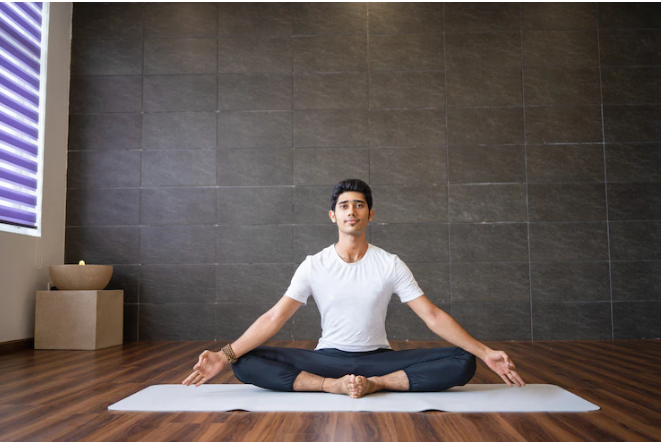Many people are unaware of yoga’s many advantages. It decreases cholesterol, makes it easier to control blood sugar levels, and might even make you feel better. Yoga is a potent stress reliever in addition to these benefits.
Although yoga isn’t necessarily for everyone, it’s a great way to lower stress and improve your mood. There is no higher medication than the electricity of yoga, regardless of how much time you spend practicing each day—5 minutes or an hour. It’s time to practice yoga to get more proof. Medications
Cenforce and
Fildena 200 can help you control your temper.
Decreases irritability
Yoga has several benefits for the immune system in addition to having anti-inflammatory properties. An essential immunological response that occurs in the body is inflammation. Chronic irritation has harmful effects on your fitness, even though acute irritation is a beneficial reaction.
Numerous serious health disorders, including most malignancies, heart problems, arthritis, and Alzheimer’s disease, have been linked to chronic infection. Yoga helps you control your irritability and avoid those situations. Learn more about the advantages of exercise.
The study also found that experienced yoga practitioners experienced decreased levels of infection before and after traumatic events. Their inflammatory reactions to upsetting jobs were also less severe than in beginners.
Yoga was done by experts twice a week for at least two years. As a result, it can assist women in monitoring their stress reactions. Additionally, it improves their mood. It might even help lessen stress and other chronic illnesses.
Lowers Blood Sugar
Regular exercise has been scientifically show to reduce blood glucose levels. Three months of consistent yoga practice can increase your ability to control your blood sugar levels in diabetics by as much as 10%. It is strongly advise that Type 2 diabetics try yoga for at least a month to improve their quality of life and lower their risk of developing diabetes as far as mental health is concerned. You can feel more at ease and relaxed by practising yoga.
Yoga has becoming increasingly popular among those who have diabetes as a form of exercise. Along with enhancing their general wellbeing and lowering their blood sugar, it can also help them become more mobile, manage their blood pressure, and reduce stress.
Lowers Cholesterol
Yoga has many advantages above standard stretching and aerobic exercises. These exercises increase general fitness, harmonize the mind and body, and lessen aches and pains. Regular yoga practice may also help you control your cholesterol levels, yet there are some medical problems for which alternative healing methods are insufficient.
A 2013 study of 100 adults with type 2 diabetes found that regular yoga practitioners showed significant reductions in both triglycerides and total LDL cholesterol. Additionally, it reduced levels of terrible LDL cholesterol, or low-density lipoproteins (LDL).
Before it can be applied for preventative purposes, the study must be replicate with diabetes individuals. As an addition to drugs, it might be recommended to diabetic patients. Despite being a potent opportunity remedy for a healthy heart and movement, it shouldn’t be use in place of a medical prescription.
Improves Mood
William J. Broad, a developer of the New York Times, has noted that has a significant impact on our Mood Styles. The physical activity of yoga releases tension, balances blood chemistry, and fine-tunes our nervous system. All of those outcomes have a favourable impact on our moods. But exactly how does yoga lift our spirits? Broad explains that playing sports physically has positive effects. Strength tier enhancement is one of the most frequent.
The observation indicates that sessions can lessen depressive symptoms in those with despair, anxiety, and schizophrenia. The study’s findings are encouraging. Exercise on a regular basis can help people overcome physical obstacles that prevent them from exercising as well as intellectual health issues. The purpose of
Cenforce 150 is to temper batter.
Researchers found that in a group of individuals who practise yoga for 12 weeks, higher GABA levels in the brain were associate with better mood and decreased levels of anxiety. This finding supports the idea that practising yoga can increase the amount of endogenous antidepressants in the brain.




